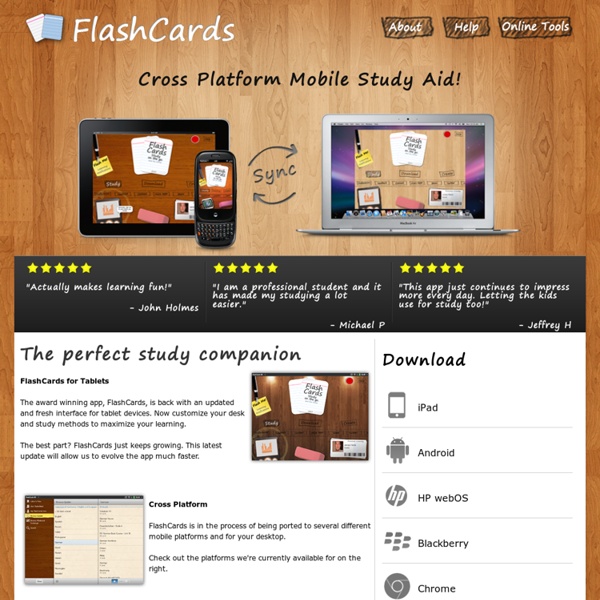



Study flashcards online or mobile. CoboCards Best Android Apps and Options for Persons with Disabilities With the swiftness with which technology has drastically changed over the years, it can be easy to get so caught up in all the hype and excitement of how the latest gadgets have transformed how we live. For techies and the younger generation, getting up to speed and adapting to the change in our lifestyles is a breeze. But, for some others, catching up is somewhat akin to a chore, and so they are, quite sadly and unintentionally, left in the dust. Not to worry, though. You or a friend or family member can benefit from these special apps that aid in making Android more accessible and user-friendly: Options for the visually impaired Non-visual feedback. Carrier-specific apps. Large text. Voice commands. Options for the hearing impaired IM Clients and Texting. Text-to-speech. Google Translate. Dropping your voice plan. Options for the mobility impaired Enlarged graphics on interface. Easier navigation is coming.
Study Tools: Free Educational Apps Our apps for web, iOS, and Android are all designed to help you make the most of your study time, when and where ever you need them. Search our rich content library. Get recommended and relevant content by subjects you're interested in. Create & customize your own flashcards. Different study modes - quizzing, review sheets, flashcards - let you learn the way that works for you on-the-go. Study Guides include every card for the class and automatically update as new cards are added. Track how you're doing in real time with an automatic self-assessment score. Teachers track student studying progress with Class Stats. Store & organize your notes, syllabus, practice tests, and flashcards in your digital backpack. Sync it with Evernote. Join your classmates, see textbook materials, and message a new study partner.
Revision Strategies | Study Skills | University of Manchester We all understand the importance of revision. Most work hard at it, but we don't always work well at it. As with any other aspect of your studies, you need to organise your time and plan your revision in advance. The main purposes of revision are: to understand the topic for which you are sitting an exam to commit what you have learnt and understood to memory to practice planning and writing answers to questions To enable you to do this, you will need to organise your notes, essays, handouts etc. into a convenient and coherent set of material. making a revision plan how to revise revising all year round Making a Revision Plan As always, planning is key. Create a Revision Timetable You should start revising at least five or six weeks before your exams are due to start. How to Revise There are three key revision methods: note-taking/note-making memorising drafting model answers We will look at each of these in turn: 1. When it comes to note-making for revision purposes, less is more! 2. 2.
Online Flashcards with Spaced Repetition: FlashcardDB Comparing OCR Scanning Apps – ZoomReader, Prizmo and TextGrabber What’s the difference in accuracy and features of ZoomReader, Prizmo and TextGrabber OCR scanning apps for clients with a print disability? A few great questions from comments of readers inquired about the difference between OCR scanning apps mentioned in a prior post that are used to convert images to text for individuals with disabilities. So, I decided to do an informal comparison of the apps mentioned to determine the accuracy of the apps ability to perform OCR scans of images using with three apps typically mentioned or reviewed for individuals challenged with accessing text (e.g. low vision or print disabled). Here is what I found in this informal research comparison: Material used: A clean, hard copy document with 275 words with 12 point Arial black and blue font on white paper with no images was consistently used to scan with each app. Apps used: ZoomReader on an iPhone4 (only available for iPhone) TextGrabber + Translator (iPhone and iPad) and Prizmo Results: and Prizmo apps. Carol
Sign in to Cram.com www.cram.com Sign in to your account Forgot your username or password? Don't have an account? Sign Up or Or sign in with Facebook, Twitter or Google Sign Up with Facebook Sign Up with Twitter Sign Up with Google If you don't have an account with us we'll create one for you. Cram has partnered with the National Tutoring Association Claim your access
Top Note-Taking and Revision Tips: Ace Your Exams with the Help of This Visual Guide We've shared a few tips about exams and revision before, including advice on how to make better guesses on multiple choice tests and why cramming for exams doesn't work. Related: The Ultimate Guide to Making and Saving Money as a Student With exam season about to get into full swing, this handy infographic from student accommodation provider WBSA is a nice visual guide to brush on your note-taking and revision strategy. It outlines a few popular note-taking methods, and reminds you that handwritten notes tend to offer higher information retention, compared to digitally taken notes. There's also some tips for reviewing notes after lectures, seminars, and study sessions. Happy revising and good luck! Similar: A Student's Guide to Getting Cheap Home Broadband [via WBSA] Header image by pedrosek